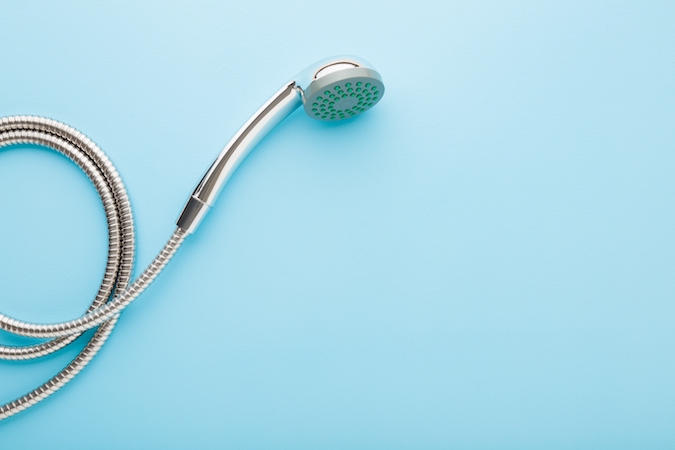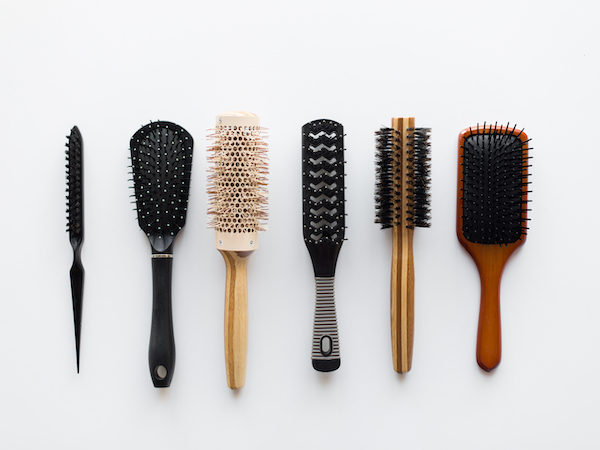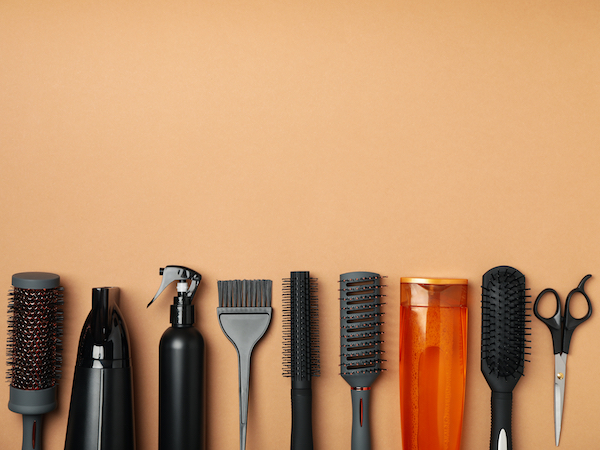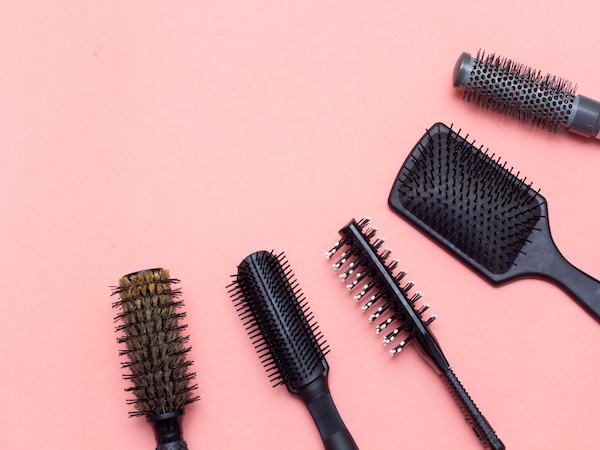Many people notice that while they shower and clean their hair, many strands of hair end up leaving the scalp in the process. This can be alarming if you are unsure of the cause of this hair loss or do not know what is considered normal in terms of hair loss.
This article will discuss what is and is not normal when losing hair in the shower. Stick around and keep reading to learn all about why your hair may be falling out and potential solutions you can use to ensure your hair’s health.
Hair shedding: what’s normal?
Hair shedding is a normal part of being human. Our hair naturally falls out and regrows over time, and the simple occurrence of hair shedding is not always a cause for concern.
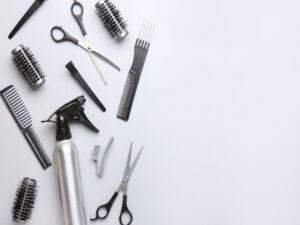
Stop hair loss before it's too late
Get prescription treatment delivered to your door. Fast online assessment, expert care, proven results.
According to the Canadian Dermatology Association, it is normal for a person to lose between 50 to 100 hairs per day. These hairs will typically regrow once they have fallen out.
Additionally, the association states that androgenetic alopecia — also known as male or female pattern baldness — is a fairly common hair disorder, affecting roughly 50% of men.
As for women, the prevalence of androgenetic alopecia is a little harder to pin down but at least 40% of women will experience signs of thinning hair by age 50.
Luckily, androgenetic alopecia is treatable and Health Canada has authorized medications available for treatment.
How much hair is normal to lose in the shower?
When you shower, you put more strain on your hair by washing and scrubbing it. As a result, you may notice the most hair shedding while in the shower.
As mentioned, you can lose up to 50 to 100 hairs every single day and still be considered in a normal range for daily hair loss. This amount may even increase for people with long or thick hair. In the shower, you may notice this hair coming off on your fingers and hands.
In general, hair loss in the shower is normal. However, if you begin to notice larger clumps of hair coming out or clumps coming from one area specifically, it may be time to seek medical attention.
Is shampoo bad for your hair?
Everyone’s hair is different and will react to various hair products differently.
Generally, shampoo is considered a healthy part of your hygienic routine, as it helps to clean your scalp.
However, overuse of shampoo can strip your hair of natural and healthy oils. Some shampoos even contain harsher ingredients like sulfates, which can lead to hair damage.
Although these ingredients found in many shampoos can damage the quality of your hair, there is currently no evidence to suggest they contribute to hair loss or worsen hair loss disorders.
Why your hair may be falling out
Noticing that your hair is falling out can be alarming and send your mind into a spiral.
Before you begin to panic, remember that some hair loss is normal and that there are many different potential causes of hair loss. These include:
1. Hormonal imbalance
Your hormone levels have a direct impact on your body hair.
According to a 2020 article published in the International Journal of Molecular Sciences, androgens — such as testosterone, dihydrotestosterone, and dehydroepiandrosterone sulphate — are some of the most important hormones related to hair growth.
Hormonal imbalances resulting in hair loss typically have to do with a drop in estrogen and progesterone and a rise in androgens. These androgens can shrink your hair follicles, which can result in hair loss.
This type of hormonal hair loss is especially prevalent in people going through menopause who experience a noticeable drop in estrogen levels.
2. Stress
A little bit of daily stress is normal — but when your stress levels start becoming more severe, this can have serious impacts on your hair.
In a 2021 research paper, it is stated that chronic feelings of stress can lead to continuous hair loss or even more serious hair loss disorders such as telogen effluvium or alopecia areata. The research paper further states:
“It is thought that, under stress, the hair follicle is under a micro-inflamed environment and may need more of its essential nutrients such as proteins, vitamins, iron or zinc.”
3. Iron deficiency (anemia)
Iron is an essential nutrient that aids in hair growth by boosting your blood circulation and helping to carry oxygen to your hair roots.
As such, an iron deficiency — also called iron deficiency anemia — can cause serious problems for normal hair growth.
One study on the relationship between iron deficiency and hair loss states that there is strong evidence to support that iron deficiency is a “factor of developing or worsening [female pattern hair loss].” However, the study also states that such conclusions cannot be drawn about male pattern hair loss.
4. Hypothyroidism and hyperthyroidism
Your thyroid is a small organ near your windpipe that helps control your body’s metabolism and regulate certain hormones.
Hyperthyroidism (overactive thyroid) and hypothyroidism (underactive thyroid) are two serious medical conditions that can affect the function of your thyroid gland. These disorders can disrupt normal hormone levels, including key hormones that affect hair loss, including TSH, T3, and T4.
To identify if your thyroid is causing you to experience hair loss, you will need to visit a healthcare practitioner who can carry out a full thyroid panel and check your hormone levels.
5. Dramatic weight loss
If you are on a weight loss journey or have circumstances outside of your control causing you to lose weight, hair loss can be a side effect of extremely rapid weight loss.
The most common causes of hair loss following weight loss are nutrient deficiencies, which can lead to the development of acute telogen effluvium (TE).
TE is generally temporary and highly treatable, and is caused by a sudden drastic event, such as trauma or extreme stress. As extreme weight loss can put undue stress on the body, this makes the development of TE more likely.
6. Age
Gradual hair loss is a natural part of aging, with male or female pattern baldness being two of the most common conditions associated with age.
Hair loss from aging affects roughly 50% of the population by the age of 50.
Androgenetic alopecia (male or female pattern baldness) is a genetically inherited condition, making it more likely for people with a family history of the condition to develop this type of hair loss.
7. Traction alopecia
Traction alopecia is a type of hair loss that results from continuous strain being placed on the hair follicles. This strain typically comes from hair stylings, such as tight ponytails or braids, that tug on the hair follicles and scalp, leading to hair loss.
While the early stages of traction alopecia are treatable, research shows that the condition can worsen in its later stages and lead to scarring alopecia — for which there is no treatment.
The best way to get traction alopecia under control early on is to stop using strenuous hairstyles on your hair.
How to stop hair from falling out in the shower
Now that you have a better understanding of why your hair may be falling out during your daily wash, let’s go over seven tips for slowing or stopping your hair loss in the shower:
- Vitamins for hair growth: If you are suffering from a vitamin deficiency, one of the best things you can do is begin taking vitamin supplements to replenish your vitamin stores. Vitamins designed specifically for hair growth will contain many of the vitamins and nutrients you need, including B vitamins, iron, and biotin.
- Always moisturize: To keep your hair from drying out and becoming damaged, make sure to always add moisture back to your hair and scalp with a conditioner. For thicker or curlier hair, a leave-in conditioner after the shower can also work wonders.
- Go natural: Chances are, if you are constantly using heat and chemicals on your hair, you are likely to experience more hair breakage or hair loss. The best remedy to this is to forego heat and harsh chemicals in favor of your natural hairstyle.
- Head massage: A professional or at-home head massage can help stimulate circulation in your scalp and hair follicles. A head massage can also help to increase your hair thickness by stimulating and stretching the cells in your hair follicles.
- Style with care: If you are committed to using your styling products, make sure to style with care to protect your hair. Always use heat protectants and look for products without harsh ingredients that can damage your hair.
- Treatments for hair loss: If you are already experiencing noticeable hair loss, there are many treatments you can seek to help regrow your hair. If you want to learn more about hair loss, its causes, and treatments, check out our free resource — the Beginner’s Guide to Hair Loss.
When to talk to a healthcare practitioner
If you ever find yourself concerned about the amount of hair you lose in the shower or just on a daily basis, it’s never a bad idea to reach out to a healthcare practitioner.
Speaking to a healthcare practitioner can help bring your greater peace of mind by shedding light on the problem and aiding you in finding a solution.
Additionally, you should consult with a healthcare practitioner as soon as possible if you begin experiencing any of the following symptoms:
- Extreme scalp irritation
- Sudden and severe hair loss
- Scalp infections
Key takeaways
Losing a lot of hair in the shower can cause alarm, but some hair loss is perfectly normal and natural.
If you suspect there may be a medical problem affecting the amount of hair you shed in the shower, make sure to contact a healthcare practitioner.
To find out more about hair regrowth, or the options available to you, get started with Felix today.
